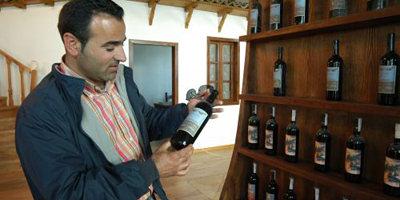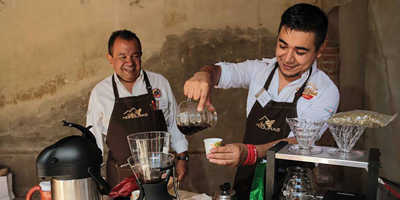The development of the private sector in the partner countries, based on the principles of free competition, respect of the rights of workers and protection of the environment, is a necessary requisite not only for sustainable economic growth, but also for the affirming democratic participatory principles and eliminating discrimination. Following the high level Forum of Busan in 2011, the relationship between cooperation and the internationalization of businesses is still in search of a new foundation, in respect of the diversity of goals, capable of aligning those goals so that they can interact effectively. On these aspects, the European Commission has approved a statement in which it introduces, among other things, the distinction between “Private Sector Development” and “Private Sector Engagement”, in the orientation toward a more direct involvement of the private sector in projects having a clear and synergetic focus of development. The experience of small and medium enterprises, aggregated into networks and organized with common services to create economies of scale, and networks like the cooperative system, give Italy an advantage to contribute to the growth of the private sector in the partner countries. Starting precisely from this Italian experience, it will be possible to develop widespread entrepreneurship, beyond the limits of systems that are often marginalized by the invasiveness of the state, or blocked by the existence of monopolies.
When Italian Law 125 was enacted in 2014, it was, thus, with full awareness of the need to involve the private sector in development, viewing the policies of cooperation also as representing an effective form of strategic investment in the country. This the case, for example, of article 8, which provides incentives for financing small and medium local businesses through credits of assistance, and article 27, which permits financing Italian enterprises interested in engaging in mixed foreign and local partnerships. Other tools provided by the new Italian legislation on cooperation are the so-called “matching” opportunities, that provide for application of a credit of Italian assistance for an Italian business that participates in an international tender call for development projects, and “blending” with funds of the European Union, seen as forms of financing for development projects that contemplate the use of donated resources and others on credit. On this latter point, the European Commission has presented a new tool for financing projects in Africa, the African Investment Facility (Afif), which should serve to maximize the effectiveness of the development programs financed with European development funds in sub-Saharan Africa, making it possible to combine EU funds and financial contributions by other public or private investors, in the wake of lines of action introduced by the Commission in May 2014 with regard to strengthening the role of the private sector in the EU development cooperation policy for sub-Saharan Africa.
Activities in support of local SME are currently in progress in Albania, Serbia, Tunisia, Egypt, Morocco, Jordan, Palestine, Ghana, Senegal and Uruguay. Most of these lines are connected to exports of Italian goods and services.
A concrete example of the Italian commitment in the sector is the support for Egyptian producers through the provision of facilitated credits to micro, small and medium enterprises, in collaboration with the appropriate institutions including the Social Fund for development and national banking institutions. The goal is to contribute to the expansion of Egyptian SME, by providing financial resources at more favorable conditions than the current market rates, for the acquisition of technology, machinery, known-how and licenses of Italian origin. In this way, the Egyptian enterprises can equip themselves with advanced, eco-compatible equipment and create new job opportunities thanks to the growth of their business.
It is also important for a number of financial institutions to provide a facilitated line of credit, with a view to stimulating competition on the local market and enabling the SME to access financial solutions that meet their specific needs as closely and possible and promote the financial inclusion of marginalized groups like women, young high school graduates and rural communities. In Palestine, for example, Italian credit lines (45 million Euro, of which 22 million already distributed) are currently accessible to local businesses through the commercial banks, micro-finance institutions, leasing companies and farm savings and loan cooperatives. In less than four years since the Palestinian micro-finance institutions became involved, indeed, almost 1000 loans have enabled the development of agricultural micro-enterprises (1/3 of the beneficiaries), women (2/3 of the beneficiaries) and young people under 30 (2/5 of the beneficiaries).
What’s new in the private sector
Italian cooperation, in line with the 2030 Agenda for sustainable development which, in art. 67, invites all the enterprises to employ their creativity and their innovation, to find solutions for the challenges of sustainable development, recognizes and urges the contribution of businesses and banking institutions in the processes of development of its partner countries, in respect of the principles of transparency, competition and social responsibility (art. 27 of Law no. 125/2014), through:
- increased participation by for-profit enterprises in procedures of public evidence on contracts for initiatives of cooperation;
- incentives for the creation of “mixed enterprises” in the partner countries;
- initiatives proposed by private parties.
This is the new framework of the private sector, with respect to the past in which the efforts were primarily concentrated on the development and support of the local private sector. Now, Italian cooperation wants to work toward a convergence between the profit non-profit and for-profit sectors through partnerships with the “traditional” entities of cooperation, adding resources and technical know-how.
Art. 16 of the Agency’s Articles of Association stresses the advocacy of innovative forms of partnership, tending toward a broader involvement of the enterprises, particularly small and medium companies, as well as toward the support and growth of the private sector in the partner countries, listing the principles and aims to which these activities should conform
- corporate law;
- international standards on the subject of human rights, the dignity of labor, social responsibility and environmental protection;
- standards as they relate to public contracts (legislative decree no. 163/2012);
- the Agency’s code of conduct.
The new law encourages the Agency to promote financial instruments and new forms of partnership with public and private companies to identify, formulate and validate technical strategies and methods of actions that are sustainable and involve a plurality of elements, in line with SDG 7, to foster synergistic actions in the sectors of energy and sustainable development.


